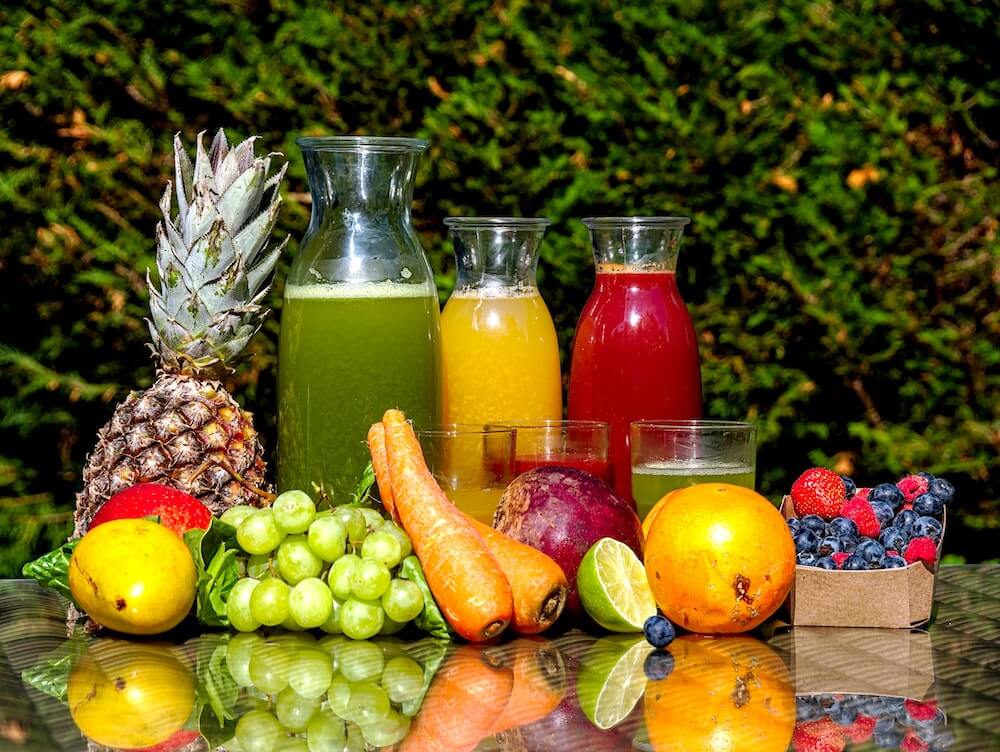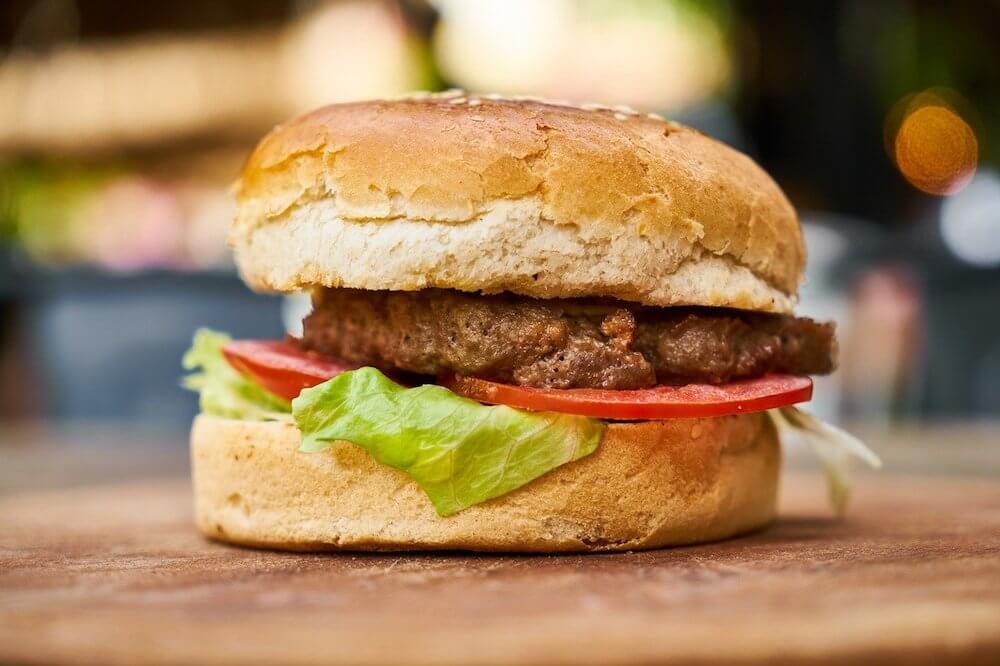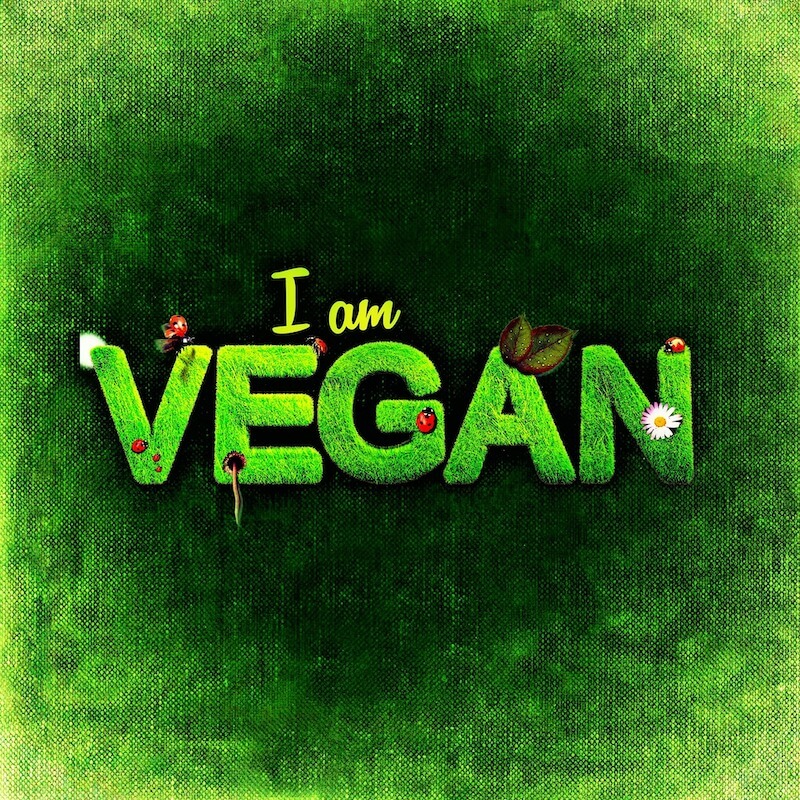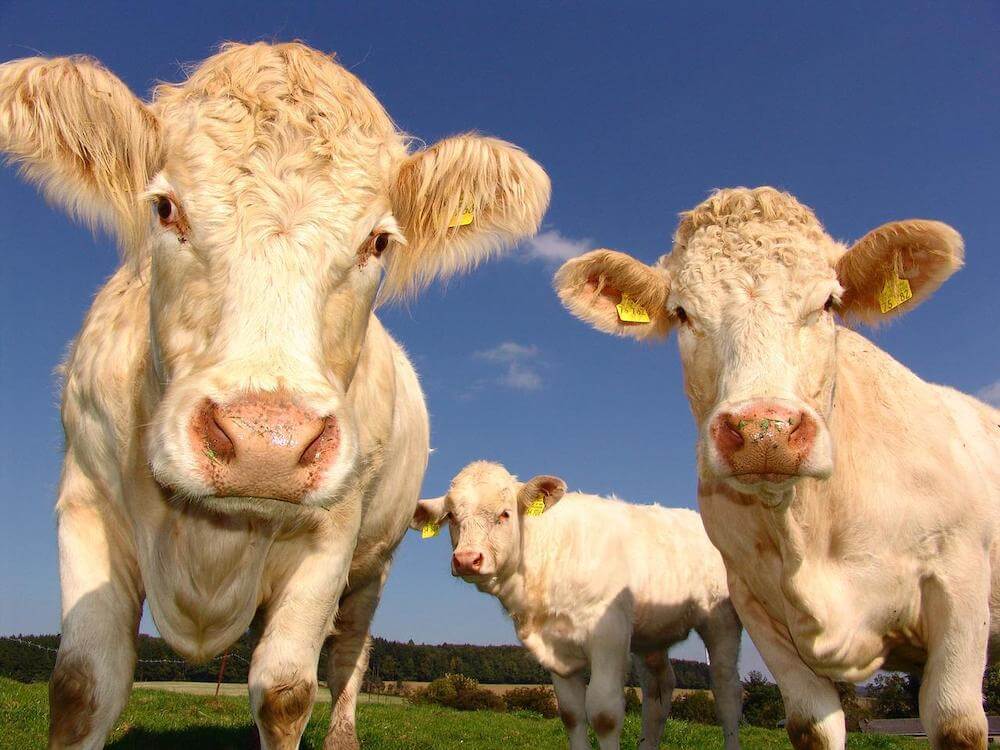In a word, the answer to, do you feel better physically after switching to a vegan diet, is yes. But there are some ‘buts’ to take into account.
Like anything, it’s worth looking a bit deeper than just scratching at the surface level.
So here we go. . .
Table of Contents
Firstly What do You Mean When You Say a ‘Vegan Diet’?
Actually, the word vegan refers to a lifestyle choice where the person chooses not to eat, wear or use any products which are derived from animals or animal suffering.
Therefore, when talking about a vegan diet, it simply refers to foods which are free from animal or animal-derived or animal exploited ingredients.
Because of this, it isn’t really accurate to use the term vegan diet to describe how somebody eats with reference to health.
Vegan a) might live off deep fried chips, pizza, fizzy cola, vegan burgers and white bread sandwiches while vegan b) eats only whole foods with health-giving properties.
Clearly these two extremes can’t be compared in the same sentence when talking about the changes that will take place when you adopt a vegan diet.
Therefore for the purposes of this post, the term vegan diet refers to a vegan diet which is built predominantly on the WFPB principles.

A Whole Foods Plant Based Vegan Diet
The majority of your food should be sourced from whole ingredients such as pulses, lentils, beans, chickpeas, vegetables, fruits, seeds and nuts.
So a typical meal might be a buddha bowl with black rice, red beans, tofu, broccoli, cherry tomatoes and avocados for example. And for breakfast perhaps you enjoy a delicious chia seed pudding with fruit.
A dinner of air-fried vegetables with cilantro sauce and you’re away.
For a more detailed look at the WFPB way of life, you may like to take a look at this easy guide to a whole foods plant based diet.
How Going Vegan Can Affect Your Body from Day 1
When you choose a vegan diet and you live from health-giving whole foods, your body reacts in tangible ways to show you that your health is improving.
You feel it, or you can ask the doctor to take blood tests to prove it. Many people check their vitamin levels, blood sugar levels etc. regularly with their doctor.
Going vegan with a healthy, balanced whole foods plant based diet can affect your body in multiple ways.
Blood Sugar Levels Stabilise on A WFPB Vegan Diet
When you first change over to a (healthy) vegan diet, you’ll be kicking out a lot of the refined carbohydrates which you might have been in the habit of eating before.
If you say goodbye to the sugary drinks, breads, pastas, cakes, biscuits, crips, pizzas etc and replace those with fresh fruit and vegetables, beans and legumes and lentils, nuts and seeds, you’ll reap the most rewards from making the switch.
These foods act to stabilise your blood sugar and this is one of the first responses you’ll see when switching to a vegan diet.
Every time you eat something, your body releases the hormone insulin. The amount of insulin released is in direct response to the amount of glucose in the blood stream.
When eating refined carbohydrates, sugary foods, white breads, white pastas, processed foods etc, the body converts the food into glucose which is passed into the blood stream. This causes a spike in blood sugar levels and the release of more insulin.
Because this happens every time you eat, the regulation of blood sugar is something that will improve immediately, from your first WFPB meal.
Prevent or Reverse Prediabetes/Insulin Resistance/Metabolic Syndrome with a Vegan Diet
In a person with prediabetes (also called insulin resistance or metabolic syndrome), the cells stop responding to the insulin and the blood sugar continues to rise, eventually leading to fully blown type 2 diabetes. For more information visit WebMD’s article on insulin resistance syndrome .
When you eat a diet high in carbohydrates and refined foods, the pancreas increases the amount of insulin which is released, and for a period of time this works to control your blood sugar levels.
But as the pancreas continues to pump out higher levels of insulin the cells begin to stop responding so efficiently to it, becoming resistant to it.
The pancreas works harder to produce more insulin, but if this continues, the pancreas can’t keep up with the amount of insulin production needed. The cells no longer react to the blood sugar and the levels of sugar in the blood begins to rise.
A vegan WFPB diet is high in fibre, which takes longer to digest and causes less glucose to be sent into the blood stream in an initial spike after eating.
Prediabetes/insulin resistance is very common in today’s developed world and is the precursor for type 2 diabetes. It can totally be reversed and prevented by switching to a whole foods plant based vegan diet.
Reverse or Prevent Symptoms of Prediabetes/Insulin Resistance/Metabolic syndrome with a Vegan Diet
Symptoms of prediabetes may be noticeable but you can also have prediabetes without realising. The best way to know for certain is through a blood test to check if the blood sugar level is high.
Symptoms are. . .
- peeing more than usual
- tiredness or fatigue
- more thirsty than normal
- may have blurry vision
You may also suffer from:
- obesity
- high cholesterol
- high blood pressure
- high triglycerides
Prediabetes Can Lead to Serious Consequences if Not Controlled. . .
- type two diabetes
- high blood sugar
- low blood sugar
- heart attack
- stroke
- kidney problems
- Alzheimer’s disease
- eye problems
- cancer
Reduce Your LDL (bad) Cholesterol Levels After Switching to a Vegan Diet
Meat and dairy are high in saturated fats and saturated fats are linked to high LDL (bad) cholesterol levels in the blood.
HDL cholesterol is a fatty substance which builds up in the blood stream and can lead to heart disease. A vegan diet removes these unhealthy sources of saturated fats and replaces them with healthy unsaturated fats (olive oil, avocado and nuts are all sources of unsaturated oil for example).
HDL bad cholesterol is not present in plant based whole foods. Therefore, if you suffer from high cholesterol, switching to a WFPB vegan diet may well be your first step to controlling it.
According to this article in the BEET, your cholesterol levels can start to drop in as little as 3 weeks after switching to a vegan diet.
The Vegan Society warns that vegans are not completely free from dietary saturated fats if they eat a lot of processed products and coconut oil.
Watch Dr Michael Klaper’s Story
Flourishing Gut Health and Gut MicroBiome after Switching to a Vegan WFPB diet
When you switch to a vegan diet and eat foods that are high in fibre, as is the case with a whole foods plant based vegan diet, your gut health is very likely to improve.
The high fibre in the diet supports and encourages a higher diversity of beneficial bacteria while leading to a reduction in the inflammatory gut bacteria.
To make sure that you’re feeding the healthy gut microbiome eat lots of whole grains, legumes, vegetables and fruit.
Changing your gut microbiome is both fast and slow! Don’t worry, about the intentional contradiction…
Fast because in as little as 3 days the gut microbiome can start to become more diverse with healthy bacteria growing, and slow because actually, you need to allow time for the full diversity of the gut flora to flourish and for the bad bacteria to die off.
Too sudden a change can cause digestive upset from large die offs of bad bacteria and the imbalance created.
It’s better to allow it to develop slowly and it’s estimated that it can take 4-6 months to see the complete range of diversity with healthy gut bacteria in residence.
Initially Gut Issues May Occur when Switching to a Vegan WFPB diet
Initially, when you make the switch to vegan WFPB, the bad bacteria in your gut die off as more healthy bacteria grow and this can lead to bloating and discomfort in the early stages ,if you switch 100% from a diet rich in refined carbohydrates and processed foods to a WFPB vegan diet too suddenly.
One alternative is to approach the change more gradually, slowly introducing more high fibre foods into your diet over a period of several weeks to allow the gut microbiome to adjust more slowly.
Alternatively you may choose to switch completely immediately, and accept a period of transition with some gut symptoms along the way.
How Going Vegan Can Affect Your Brain
When done correctly, the vegan WFPB style of eating is believed to give you many brain benefits including protecting agains Alzheimer’s disease and dementia in later life.
A poorly executed vegan diet though, can lead to deficiencies and subsequently starve the brain of the vital nutrient, vitamin B12.
Vitamin B12 is specifically essential for brain health and is lacking in a vegan diet unless it’s supplemented or sourced from fortified foods. For this reason, all vegans should supplement with vitamin B12.
There are other brain nutrients too, such as omega 3 for example, which you can also supplement or eat in the form of ground flax seeds. Talk to a vegan specialist naturopath or vegan nutritionalist for your specific needs.
Research quoted by the Beet states that you may well feel happier after ditching meat and dairy to embrace a WFPB vegan diet – due to the reduced level to a substance called arachidonic acid, which is higher in meat and dairy and which negatively affects a person’s mood.
Conclusion on Do You Feel Better after Switching to a Vegan Diet?
When you first go vegan, allow yourself sufficient time to begin to feel and see the physical effects. The positive results may start pouring in immediately, or they may take longer. Give yourself time.
Chill out, it’s ok. You’ve just made the most healthy choice of your life and it isn’t as simple as flipping a switch to change your habits. But rest assured, a few months in and you’ll be feeling on top of the world.
Ways You Can Feel Better after Going Vegan
When you ditch the meat and dairy to go vegan, there are so many physical benefits which you will feel, including but not limited to the following list.
You may . . .
- Lose weight
- Trim down on body fat
- Say goodbye to food cravings
- Enjoy an energy boost
- Better heart health
- Improved skin, mental clarity and overall health
- Healthy gut and digestion
- Regular bowel action
- Reduced inflammation in the body
- Extra happiness and mental clarity
- Taste buds evolve
#1 Lose Weight, Feel Great
If you were previously overweight or obese, one of the ways you’ll feel better when you switch to a vegan WFPB diet is the shedding of the excess kilos, leading to a lighter body more agile to move around, plus less stress on the organs and a boost to your morale from the weight loss.
#2 Trim Down on Body Fat
It’s not only about weight loss but also about fat loss. A WFPB is naturally low in refined oils and results in a slimmer version of yourself even if you weren’t obese.
#3 Say Goodbye to Food Cravings
Absence of food cravings. Eating a high fibre, low sugar diet reduces food cravings which are actually caused by the sugar in the diet. Once the cravings have gone, you will feel satiated for longer, without the craving to eat foods which you don’t actually need. In other words, your hunger will be appropriate to your body’s requirements and will be for nutrients rather than for addiction to the sugar.
#4 Enjoy an Energy Boost
You may experience an abundance of energy as you benefit from your new gut flora, healthier heart and loss of excess kilos.
#5 Healthy Heart on Vegan WFPB Diet
Improved cardio vascular system will mean that you can do more physical exertion each time, with your heart-rate returning to normal range faster after finishing the exercise than before.
#6 Better skin, mental clarity and overall health
Enjoy a feeling of improved overall health, skin and mental clarity as a direct result from the healthy gut flora.
#7 Healthy Gut and Digestion
Reversal of digestive issues which came from an imbalanced gut flora: acid reflux to stomach cramps, trapped wind and more become a thing of the past.
#8 Regular Bowel Action
A high fibre diet leads to more frequent and regular visits to the bathroom and healthy bowel movements. Adios to constipation.
#9 Reduction of any Aches and Pains
Reduced inflammation in the body. This can take place behind the scenes so to speak, or you may actively notice a reduction in some of the aches and pains you used to suffer from.
#10 Extra Happiness!
Improved mood and mental clarity. Plant based eating has been linked to improved happiness – though more testing is still needed in this field.
#11 Taste Explosion!
When you first start out, the plant based food may not taste that great to you but as you continue, your taste buds actually change. Yes, literally. As you give up sugar your taste buds become more perceptive and the flavours of the plant based food becomes more and more vibrant. This is something many people misunderstand when they talk about not liking certain foods. It’s one thing to not like the idea of a food and quite another to not like the taste. If it’s the taste that isn’t very exciting to you, try giving up sugar for a month and seeing how different everything tastes. It will come alive on your tongue.
Can You Feel Worse After Switching to a Vegan Diet?
Before concluding this post, it would be remiss not to recognise that some people do switch to a vegan diet and then find that they aren’t feeling better at all.
This can be when a person is not aware of how to cover their nutritional needs when cutting out the meat and dairy. This topic is too far reaching for the scope of this post but in brief some of the mistakes people make when first switching to a vegan diet are:
- Relying on processed vegan foods instead of going whole foods plant based vegan.
- Not including plant based protein-rich foods in their meals (see how to cook without recipes for more information on creating balanced meals).
- Not supplementing vitamin B12
- Forgetting about omega 3, either in a supplement or as part of the food.
As already mentioned, some gastric upset can be experienced if you switch from a diet high in processed or refined foods to a WFPB diet in one go, but these are transitional symptoms which will improve as soon as your gut flora is populated by the new bacteria and has built up its new diversity.
If you experience negative effects from going vegan WFPB, rather than thinking the diet doesn’t work for you, instead question what you may have overlooked. Ask advice from a qualified nutritionalist but make sure it is one who specialised in the vegan lifestyle.
Bottom Line on Physical Changes After Switching to a Vegan Diet
There are so many physical benefits to switching to a vegan plant based whole foods diet, it could literally be the most important decision of your life.
And on top of all these physical benefits there’s also the huge mental boost of knowing that you aren’t supporting the meat or dairy industry and that you’re helping to create a more sustainable future for our planet.
When you start off down the vegan lifestyle journey, you may find you have loads of vegan FAQ or wonder up to what point you can maintain your vegan principles in today’s world.
I hope you found this post helpful.








